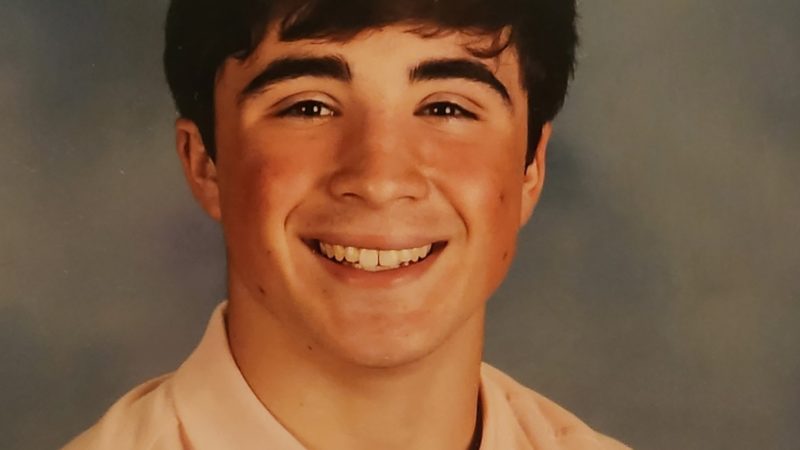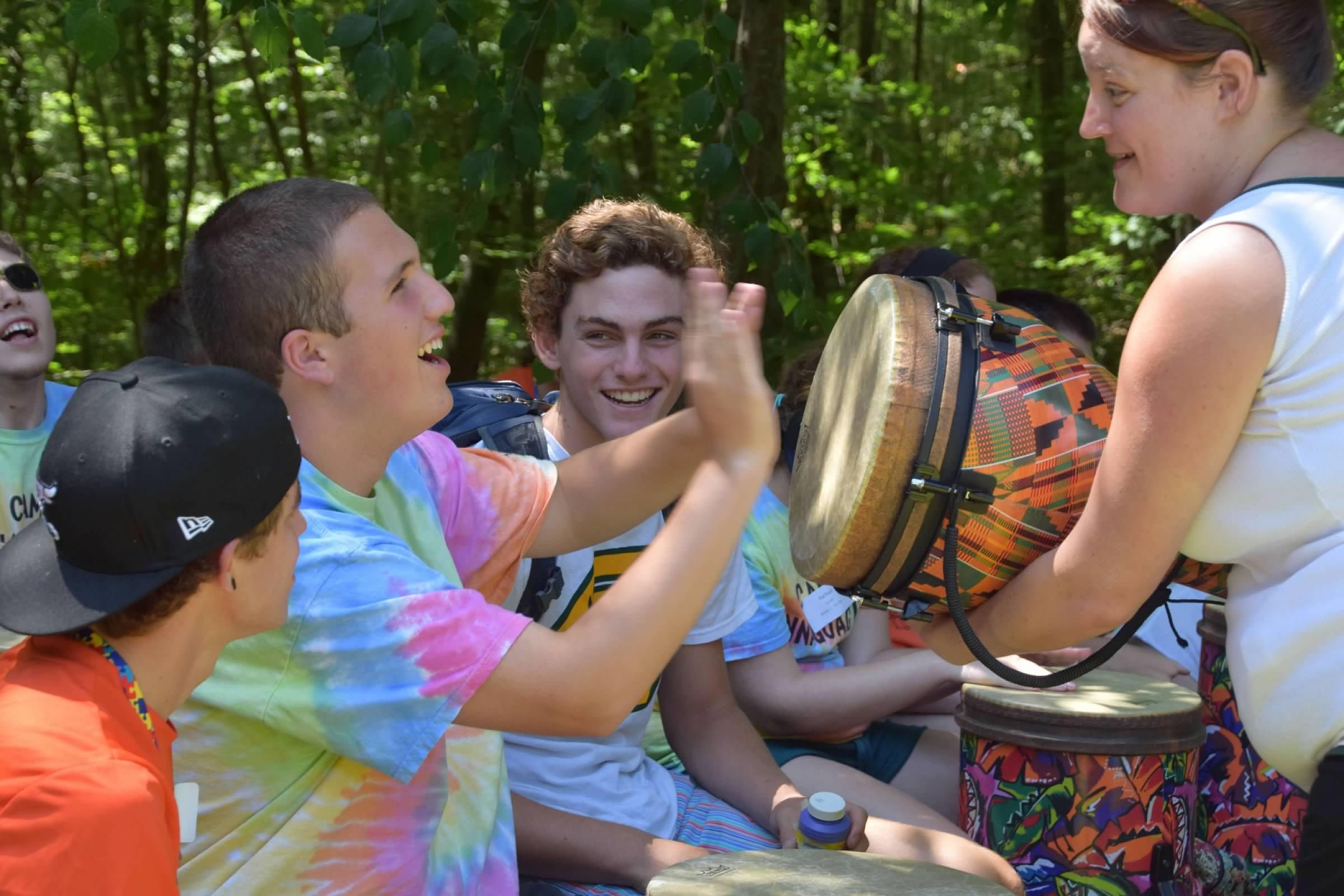
Voices of the Spectrum: Conversations with TAP's Autistic Adults #9
This is my ninth interview in a series where I speak with autistic individuals from The Autism Project (TAP) community! These conversations are a chance to listen, learn, and celebrate the diverse experiences and voices within our community. My questions are in bold, and Marcus’s responses will follow in regular format.
What are your pronouns?
He/Him
Do you refer to yourself using person-first or identity-first language (person with autism or autistic person)? Is there anything you want people to know about why you choose that language?
I use both person-first and identity-first interchangeably, but I would say that I refer to myself as a person with autism more frequently. I have chosen this language because, despite the fact that autism is a large part of my identity, it is not my sole defining characteristic. When people think of me, I want them to think of my character traits first and any identifiers second. It is important to me that I am evaluated on the entire content of my character, and referring to myself as an autistic person places too much emphasis on a diagnosis and not enough emphasis on traits that I attempt to exemplify: empathetic, considerate, and sharp.
When were you diagnosed with autism? How did you feel about getting the diagnosis? How did getting the diagnosis impact you?
I was fortunate enough to receive an early diagnosis of autism at just 3 years old. My parents told me about the diagnosis when I was 8 years old, and I wasn’t sure how to feel about it at first. I was partially relieved: even when I was much younger, I knew that I experienced sensations and acted differently than my peers, and now I had my reason why. But I also became hyper-vigilant about how it affected me, and would frequently get upset when I noticed how it interfered with my social and sensory experiences. So, armed with my diagnosis, I researched more about autism and connected with other people on the spectrum and shared our experiences. Today, I combine my knowledge of autism with my own and other people’s experience to navigate how my neurodivergence affects my day-to-day life.
Do you have any special interests or hobbies? What are they? What do you enjoy about your interests or hobbies?
I have always liked geography, maps, flags, and history. As a kid, I would draw maps with made-up countries. I would give the countries a name, a climate, a history, a language. I would simulate the history of this fantasy world passing for hours on end: the discovery of agriculture, natural disasters, alliances forming and breaking, insurgencies, wars. I played video games that allowed you to play as a country (grand strategy games) constantly. I would take Jetpunk and Sporcle quizzes with a few friends in my AP Calculus class on countries, capitals, and flags. Learning this information felt like learning more about the world around me. I had a hard time understanding social institutions and cultural norms, but exploring how they were developed (and creating fictional ones myself) helped me to grasp the concept of “social constructs.”
Are you employed or do you volunteer?
I am a self-employed math, chemistry, biology, and SAT/ACT tutor, and I am also a teaching assistant for human anatomy & physiology and neuroscience research. I have previously worked at a Mathnasium as a K-12 math instructor. I love teaching because I am able to bring out other people’s potential and interact with people who love the same subjects I do.
How and when did you first become connected to The Autism Project?
I hope to become connected to The Autism Project by sharing my voice. People have provided me with their experiences of autism, which I know has helped me grow. I would greatly appreciate the opportunity to do the same.
Do you like spending casual time one-on-one with people, in small groups, or in large parties?
One-on-one conversation for me is the easiest. It is clear whose turn it is to speak and I can keep track of the conversation fully. Small group conversation is harder, since it is unclear when I should be speaking and I may have to keep track of multiple lines of conversation at once/make sure I am distributing eye contact evenly. Parties can be overwhelming, but if I can pull one of my close friends aside for one-on-one conversation, I will be fine for the night.
What are your favorite things to do with friends or family?
Some of my favorite memories with my mother and little brother are going hiking. I love nature and, believe it or not, I LOVE heights. I would always get high up on a hill or climb a boulder off a trail, and it was a great way to spend time. My father and I have shows we watch together, and he would always engage me in deep, thoughtful one-on-one conversation at night. I love going to the gym with my friends, studying together while we talk, and trying out new places to eat.
Do you have a romantic relationship or partnership?
I have not yet had a labeled romantic relationship (but one is hopefully in the works right now!).
What accomplishments—academic, personal, or professional—are you most proud of?
I am very proud of building up my work ethic throughout the years. Having determination and drive has enabled me to have broad successes: a 3.96 GPA, thousands of research hours in neuroscience and chemistry, and a nationally competitive powerlifting total. However, I am the most proud of how I have learned to interact with people. I used to be pessimistic about human nature, believed that people could not change, and mostly kept to myself. Now, I have changed. I genuinely love people and have faith that people have nearly unlimited potential for change and growth. This positive attitude has helped me maintain several solid friend groups and acquaintances. It also led me to discover my love for teaching, and I have met many people that I am glad to know and be friends with.
What are some goals you’re working toward? Personally, professionally, or academically?
Academically, I want to graduate Binghamton summa cum laude (3.85 GPA or higher) with two B.S. degrees in neuroscience and biological chemistry. Then I want to attend medical school and earn my MD or my MD/PhD (I have not yet decided). Personally, I want to maintain good contact with my friends and family and make an effort to see them whenever possible. I am also looking to attend Collegiate Nationals for powerlifting this year, and next year I hope to place top 10 in the nation. Another personal project that I would like to finish is writing a book on my lived autistic experience, called Wired Differently. The intended audience is not only people on the spectrum, but also parents of people on the spectrum.
What do you want more people to understand about autism, especially in adulthood?
I wish that people understood the “assume competency” idea. My biggest pet peeve is being infantilized or underestimated. When I tell someone that I am on the spectrum, and they immediately soften their tone of voice, or say “I’m sorry,” or begin to treat me as if I cannot do things that a neurotypical would do, I feel humiliated. If somebody tells you that they have autism, you should continue treating them just as you treated them before, unless they specifically request a change. Autism exists on a spectrum, so there are people who can express how they feel very clearly and others who cannot express anything at all. There are people who can tolerate loud sounds and bright lights and others who will have a meltdown. Some people can take care of themselves and live on their own, others cannot and require assistance. But if you are not sure, you should always assume that an autistic person CAN do something—you would assume anybody else could, right?
What do you want employers to understand about autism?
Employers should understand that many people with autism respond better to explicitly written-down, step-by-step procedures as opposed to verbal instructions. A person with autism may misinterpret an employer’s directions if they come off as vague, but if the directions are formatted like a lab procedure, there is much less room for error.
What do you want colleagues to understand about autism?
That a person with autism’s strengths and weaknesses are still more dependent on the individual than they are dependent on an autism diagnosis. If you are working in a group with a person with autism, communicate as clearly, directly, and frequently as possible. Do not expect less (or more) of a colleague because they are on the spectrum.
What do you think doctors should understand about autism?
Doctors should understand that people with autism exist on a spectrum of sensory experience and therefore may verbally express symptoms that are inconsistent with their actual diagnosis. Some sensations can be greatly amplified or greatly inhibited in a person with autism (like overreporting or underreporting pain/pressure). Some people with autism are nonverbal and cannot properly express their symptoms. Above all, it is crucial to treat patients with autism with respect and dignity, just as you would with any other patient.
What are the greatest misunderstandings about autism?
To me, the greatest misunderstanding about autism is that people with autism do not feel, that we cannot express empathy, or that the way we feel is wrong. This is incredibly dangerous because it marginalizes neurodiverse perspectives. People with autism absolutely have feelings and can express empathy. Autism is much more of a disorder of expression of emotion than it is of feeling emotion. And to say that the way we feel is “wrong” is a dated perspective. There is no right or wrong way of feeling, and it is difficult for one to control how they feel, so to imply that a person with autism’s feelings are invalid due to their neurodivergence is dehumanizing.
Is there anything else you want people to know about you?
My favorite food is lamb chops and I love Diet Coke!
Thank you for taking the time to get to know Marcus. His perspective, determination, and passion for helping others remind us how important it is to listen, learn, and support autistic individuals at every stage of life.


